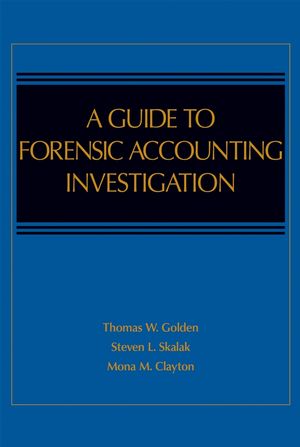


Now in its second edition, Criminal Financial Investigations: The Use of Forensic Accounting Techniques and Indirect Methods of Proof provides direct instruction on the "how to" aspects of criminal financial investigations, taking readers through the different approaches used in gathering evidence and demonstrating how to present circumstantial evidence to a judge or jury in a simple and convincing manner. Understanding the financial motivations behind white collar crime is often the key to the apprehension and successful prosecution of these individuals. This practical text presents the nuts and bolts of fraud examination and forensic accounting, enabling investigators to stay ahead of an area that is increasingly taking on global importance. For a successful prosecution, it is essential to recognize financial crime at its early stages. New chapters in the third edition New material enhances this third edition, including new chapters on investigative interview analysis and document examination, as well as advice for fraud examiners working on private cases, including the preparation of an engagement letter. The book also presents focused and concrete advice on trial preparation and specific accounting and audit techniques. Organized crime and consumer fraud Additional topics include organized crime and money laundering - with profiles of the most nefarious cartels - consumer and business fraud and the different schemes that befall the unwary, computer crimes, and issues surrounding banking and finance.

He examines the two modalities used to prove financial crime: the Net Worth Method and the Expenditure Theory, and presents an example scenario based on real-life incidents. The author provides a thorough review of evidentiary rules as well as the protocol involved in search warrants. It explores offshore activities and the means criminals use to hide their ill-gotten gains. Explores a range of crimes Following an overview of the economic cost of crime, the book examines different types of offenses with a financial element, ranging from arson to tax evasion. Written by a retired IRS agent with more than twenty years of experience, Financial Investigation and Forensic Accounting, Third Edition offers a complete examination of the current methods and legal considerations involved in the detection and prosecution of economic crimes. As economic crimes continue to increase, accountants and law enforcement personnel must be vigilant in expanding their knowledge of ways to detect these clandestine operations.


 0 kommentar(er)
0 kommentar(er)
